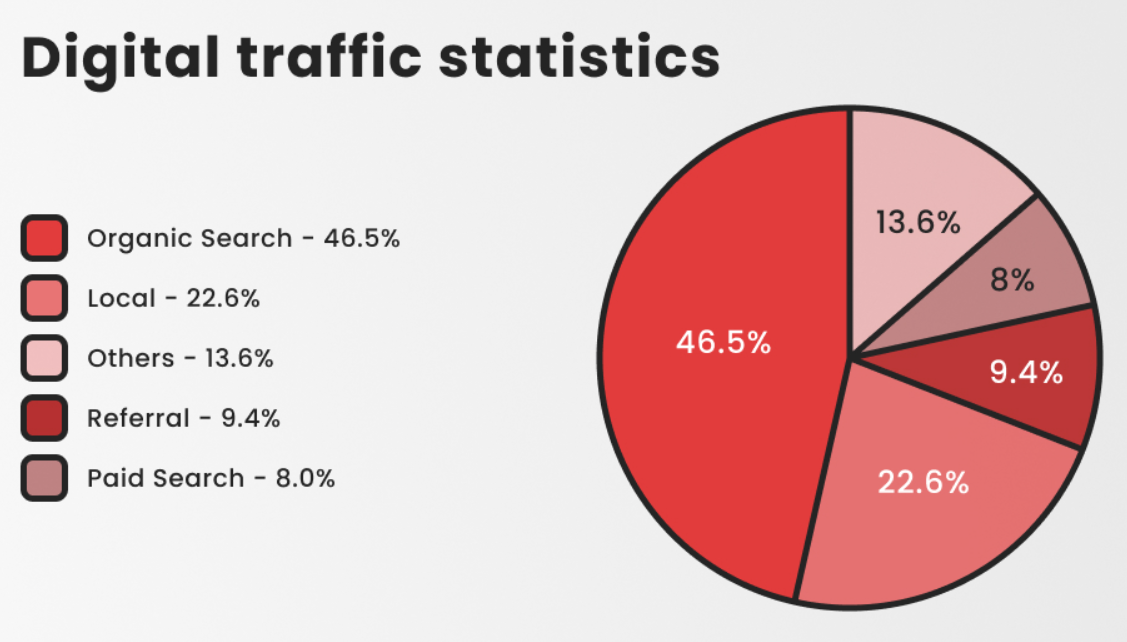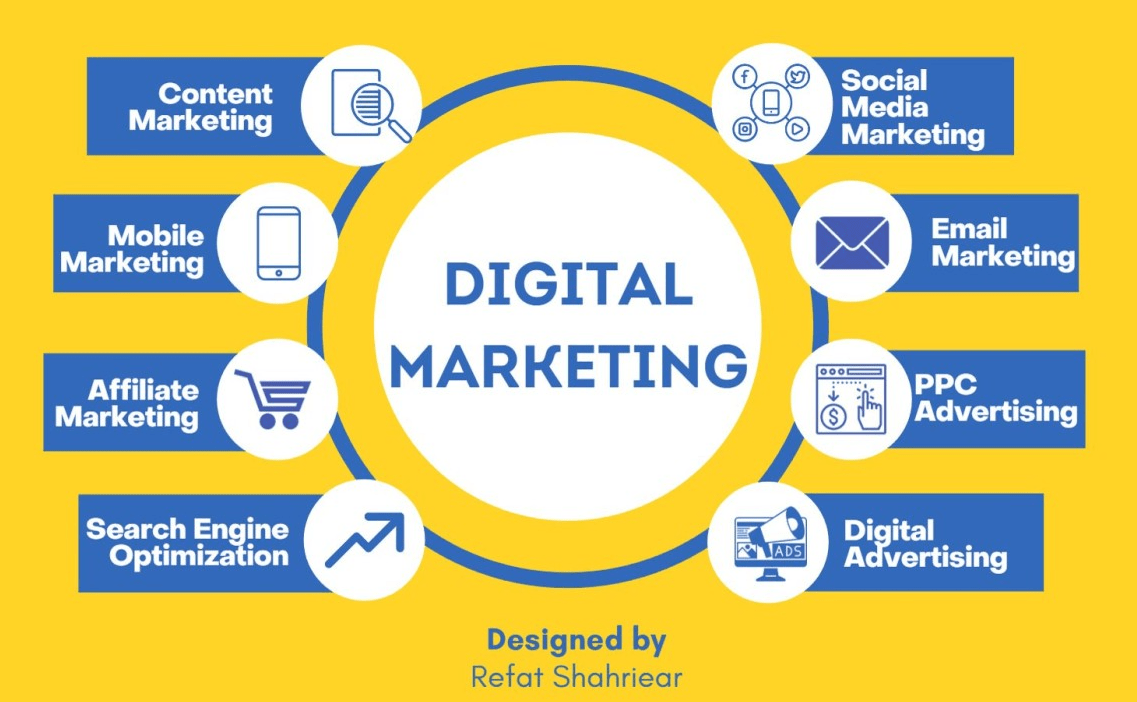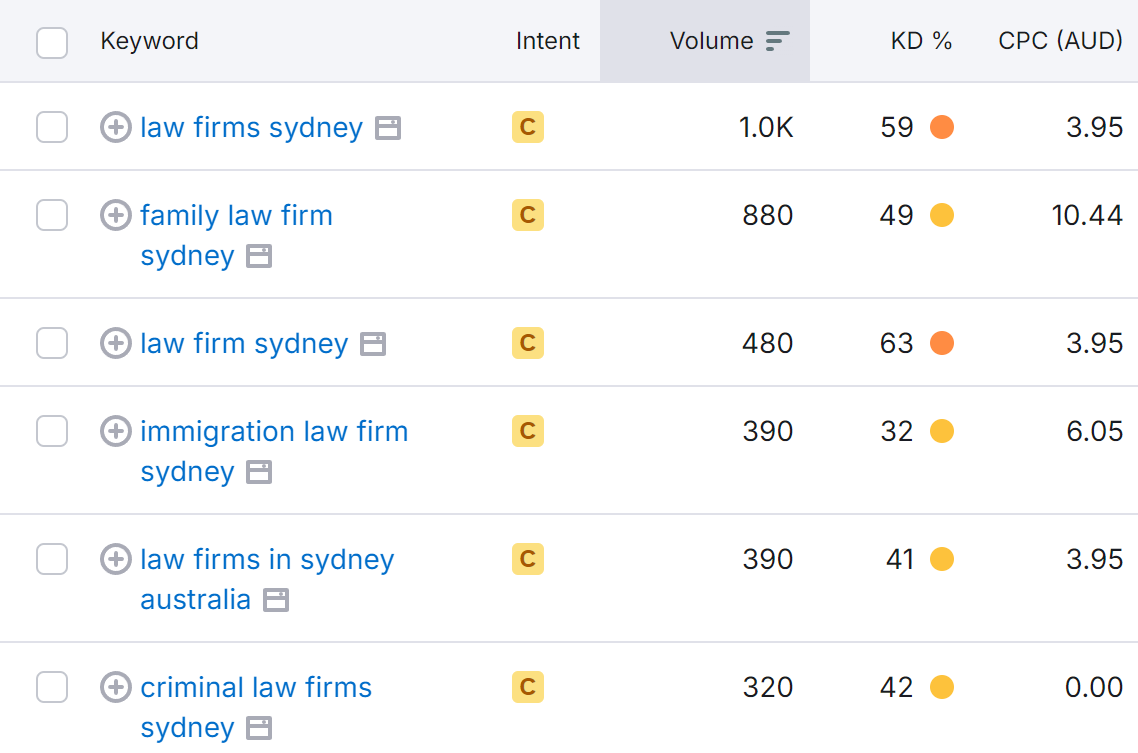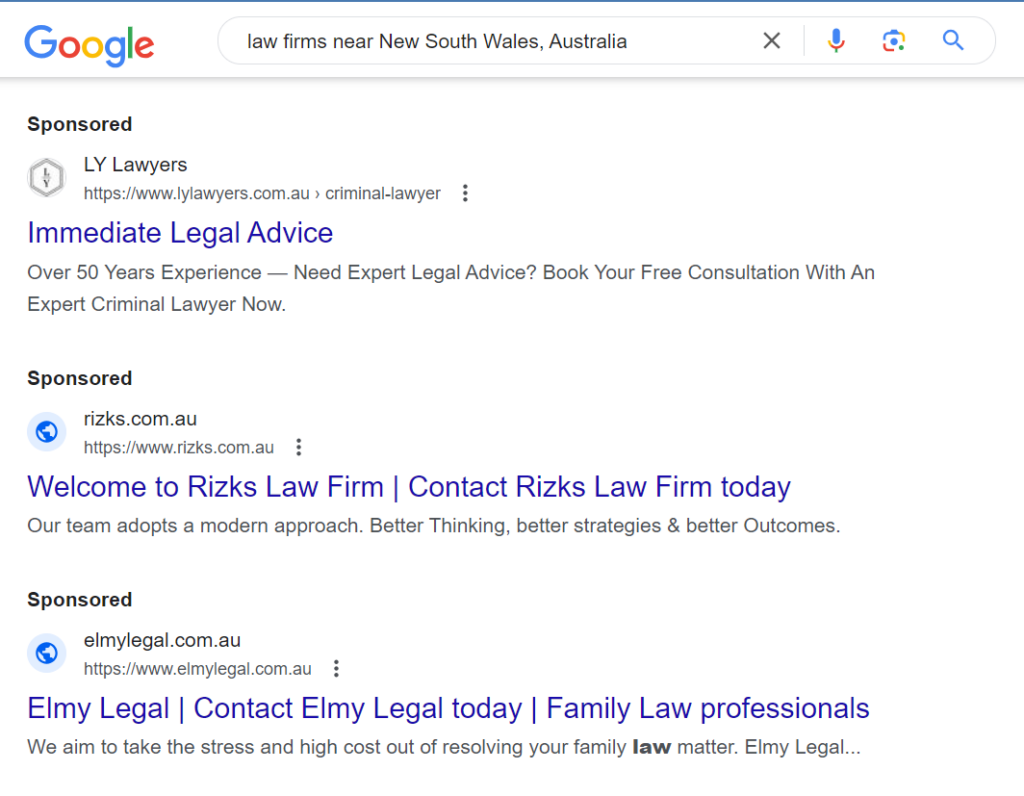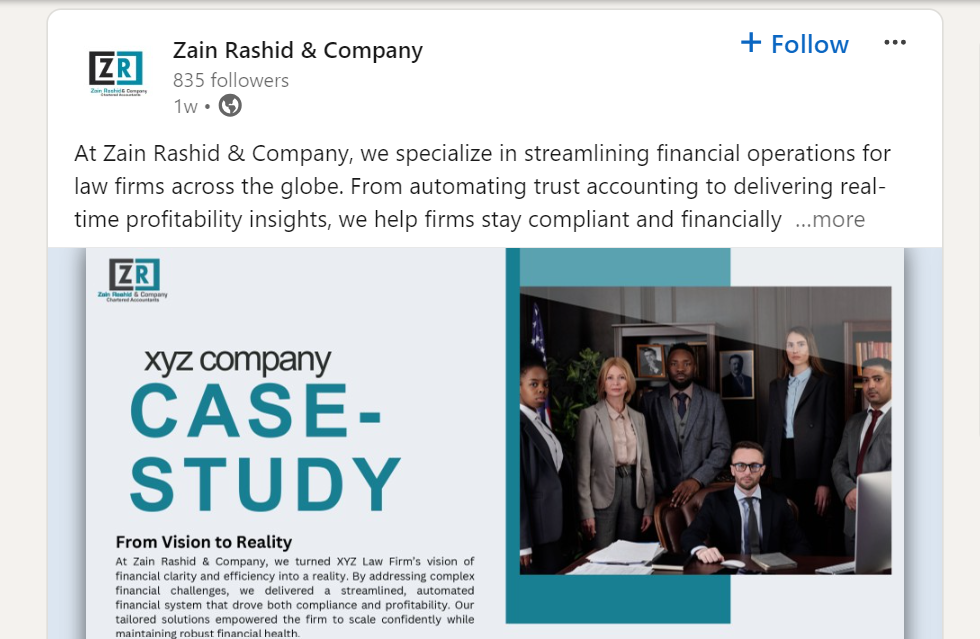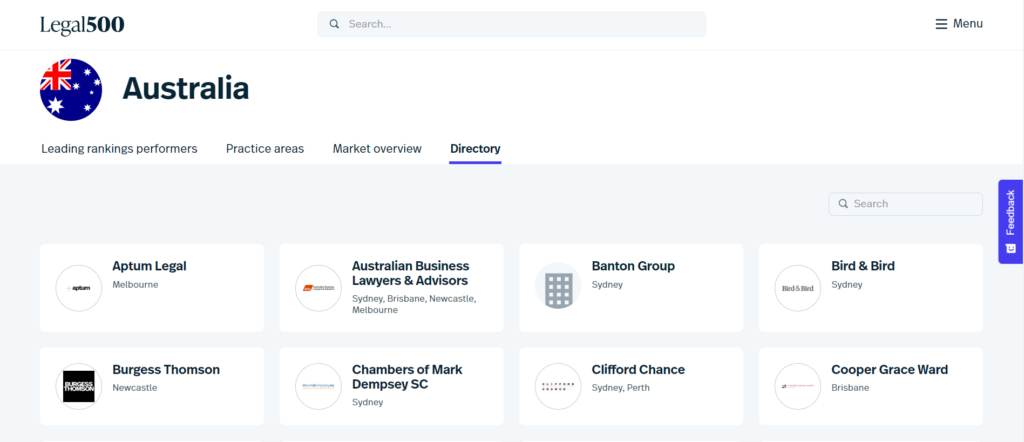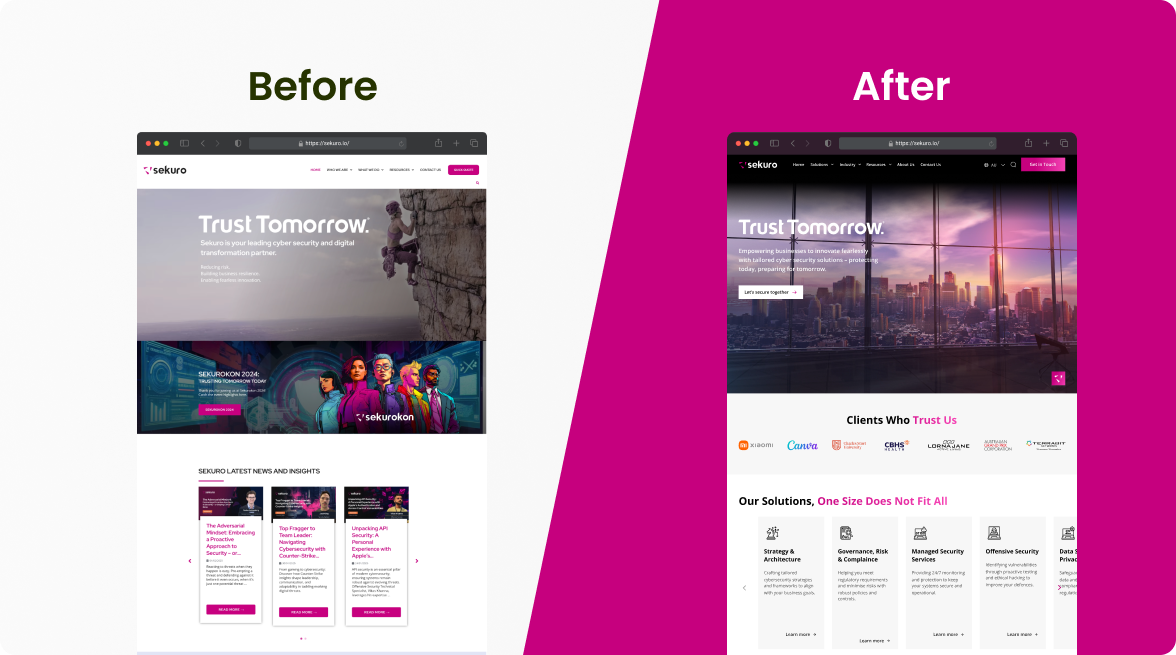The Struggle of Digital Lead Generation for Law Firms
Generating high-quality leads is essential for law firms to thrive. With a large number of law services (Family Law, Employment Law, Civil Law, and Criminal Law, Compensation Services, among others) and growing accessibility of legal information, it’s more important than ever to niche down and have effective lead generation strategies in place.
Average traffic statistics of a law firm website.
Law firms face challenges in growing their clientele, partly because of the high costs associated with legal services and the relatively infrequent need for legal assistance compared to other industries. In this industry, it’s harder to advertise to a cold audience, it’s becoming more costly to use Google Ads, and the economic situation has not been very promising in recent years. Therefore, law firms need to have a solid digital marketing plan and a consistent way to generate leads, which we will cover in this article.
Digital Marketing Strategies
To effectively reach potential clients, you have to employ a holistic approach to your law firm’s digital lead generation strategies. In Australia, law firms commonly use SEO (focusing both on Google Search and Google Maps), PPC advertising (mainly Google Search Ads), and a professional social media presence. If you would rather avoid the learning curve and fast-track your marketing result, get in touch with our team for a free consultation.
Search Engine Optimisation (SEO)
SEO is crucial for law firms to increase their online visibility and attract new clients. As you can see from the figure above, most firms attract their site visitors via SEO marketing. We recommend prioritising this strategy and optimising your website for relevant keywords and local searches in your area.
Organic search — To ensure your firm appears prominently in search results when people search for “lawyers near me”, you need a Google My Business listing. Most people use Google Search to look up legal services in their area, so using a Google My Business listing is an excellent way to generate leads as it increases visibility on Google Maps.
Ensure you complete all the information you possibly can on your Google My Business account. Here is our expert tip for this strategy: the 3 main factors that determine your rank on Google Maps listings are your business name (so try to include the word “lawyers” or “law” within or after the “business name” in your listing), your Google reviews, and your website’s SEO ranking.
Keyword optimisation — Use relevant Australian-specific keywords to improve your website’s ranking in search engine results pages (SERPs) and attract organic traffic.
Moreover, incorporating Australian-specific legal terminology like “Pty Ltd..” instead of “LLC,” or “Group Litigation” instead of “Class Action,” as well as references to local laws and regulations can further enhance your website’s relevance and appeal to Australian audiences.
Once you find your ideal keywords to rank for on Google, you will need to create content that addresses the intent of those search terms. For example, blog pages (for people seeking information) and landing pages (for people searching for services).
Another key example is compensation law—understanding the customer journey is crucial to optimising keywords for this niche. Potential clients searching for legal assistance may initially look for informational content rather than service-based pages. For instance, the keyword “medical negligence compensation” presents strong opportunities for engagement, as many users searching for it are trying to understand their rights and available legal options.
High-quality content creation – The content you create should address local legal issues and incorporate cultural nuances to establish your firm as a trusted authority in your field.
Such content could include specific legal concerns, such as neighbour disputes, personal injuries related to car accidents, child custody, wills and estates, illegal termination of employees, and consumer law.
You can extend your business content to case studies, whitepapers, and FAQs to demonstrate your expertise and build trust. Videos and infographics are also good sources of information especially in breaking down complex legal concepts into easy-to-digest information.
Some common legal concerns that Australian clients may have include:
Neighbour disputes, such as boundary disputes, noise complaints, and tree disputes; car accidents, like personal injury claims, property damage, and insurance disputes often related to car accidents.
Family law covers divorce, child custody, and property settlements. Wills and estates issues like inheritance disputes, probate, and estate planning are also common.
Business owners are also more likely to look for legal services, especially to help them with legal matters in running their business, including problems with personnel that might include unfair dismissals, discrimination, or workplace injuries.
Consumer law also cover issues that may be raised by customers, especially those related to defective products, unfair contract terms, and consumer rights.
Optimise Website User Experience (UX) – Make your website design attractive and easy to navigate. Ensure your website has a clear and intuitive navigation structure that allows visitors to easily find the information they need. Today, it’s also mandatory to make your website mobile-friendly as close to 40% of people will be using their phones to find your services.
Also remember to maintain a fast-loading speed to improve user experience and reduce bounce rates, while creating a visually appealing design that is consistent with your brand and resonates with your target audience.
Addressing these and other relevant topics in your content, you can demonstrate your expertise and attract potential clients who are seeking legal advice on these matters.
Pay-Per-Click (PPC) advertising
PPC advertising is a powerful law firm digital lead generation strategy to reach potential clients quickly and effectively. Google Ads and Facebook Ads are considered the most popular platforms in Australia that lawyers use to advertise as they offer robust targeting options to help you reach your ideal audience.
Key targeting options include:
Search queries, location, demographics, and interests (Google Ads)
Demographics, interests, behaviours, and connections (Facebook Ads)
Custom and lookalike audiences (Facebook Ads)
Other effective targeting strategies also utilise geo-targeting, demographics, interests, and behaviours to reach the right audience.
Social media presence
While social media may not be as crucial in the legal sphere compared to other industries, it can still be a valuable law firm digital lead generation tool for building credibility and showing social proof for their potential clients.
Leverage relevant platforms like LinkedIn, where professionals often network and share industry insights. Facebook and Instagram can also be useful for reaching a broader audience, especially if your firm specialises in areas that appeal to a more general demographic.
Website Optimisation for Conversions
Law firms often serve a diverse clientele, ranging from individuals seeking personal legal advice to large corporations requiring complex commercial law services. It’s essential to tailor your website’s content and messaging to attract the specific audience you want to serve.
Identify your niche
The diversity of the population needing legal advice is as wide as there are legal concerns. This is why different firms specialise in different categories. Larger firms tend to cater to commercial law and other corporate issues. General practice firms cover a wide range of legal services that will do better with targeted demographics. More boutique firms lean more toward family law, criminal defence, or specific niches that are better covered in your website’s messaging.
Knowing who you’re targeting and identifying your niche audience helps in tailoring your content so your digital marketing strategies become more effective.
Encourage with Clear Call to Actions (CTA)
Tailor CTAs to specific legal services, especially those that are relevant to the specific legal services you offer, such as “Get Your Divorce Decree” or “Protect Your Intellectual Property.”
Offering free consultations or complementary advice before your CTA also helps with conversions – this creates a sense of accessibility and approachability while also giving a perception of reduced risk. Since they don’t have to put up money upfront, this will encourage people to inquire about your services without the pressure of committing to services that amount to expensive legal fees.
Create a sense of urgency with limited time offers or guarantees to encourage potential clients to act quickly. Statements that urge potential clients to avoid potential legal consequences or encourage action to time-sensitive, legal matters are a good start.
Utilise chatbots for 24/7 client interaction
Chatbots provide instant answers to common questions and offer support around the clock. While chatbots cannot answer complex questions for specific legal problems, it can handle Australian-specific legal inquiries and provide accurate and helpful information.
You can even connect your chatbot with your customer relationship management (CRM) system to track interactions and provide personalised follow-ups.
For example, a client asks a chatbot about the cost of a specific legal service. The chatbot can provide an estimated cost and then follow up with a personalised email containing more detailed information and a link to schedule a consultation.
This use of chat boxes allows law firms to enhance customer satisfaction, improve efficiency, and build stronger relationships with their clients.
Case Study: Maurice Blackburn
Maurice Blackburn, a prominent law firm, has successfully established itself as a thought leader in its respective fields through effective content marketing strategies.
The video discussed violence and abuse, which highlighted the firm’s dedicaton to social justice. The rawness in the victims’ testimony, paired with the firms professionalism demonstrated their ability to balance their passion with legal expertise. The use of the survivor’s statement also made the film more powerful, suggesting that the firm is committed to bringing about positive change, and to ensure victims of injustice are heard. The fact that this short ad was recognised at the Cannes Lions International Festival of Creativity also showed how effective it was in its storytelling.
The key elements of the Maurice Blackman content strategy included the following:
Targeted content – Maurice Blackburn creates content that directly addresses the needs and concerns of its target audience. The video itself addressed the firm’s passion to fight injustice.
Thought leadership – The firm’s content often features insights that provided valuable information, positioning Maurice Blackburn as a trusted authority in the field.
Social Justice focus – The video, like many of their content, frequently aligns with their social justice mission, so they are always a relevant and engaging voice in the legal community.
The firm focused on these elements to successfully leverage content marketing. This way, they were able to build brand awareness, generate leads, and solidify their position as a leading law firm in Australia.
Referrals and Client Testimonials
Referrals and client testimonials are invaluable for law firms as they strengthen your firm’s reputation and credibility. Asking your clients for referrals may be tricky, so here are a few things to remember:
Provide exceptional legal services. Deliver high-quality legal advice and representation that exceeds your clients’ expectations. Satisfied clients are more likely to refer your firm to others.
Showcase positive client testimonials. Asking your clients to give you positive reviews could be a little awkward, but it is important that you do so. People who have good experience with your firm will likely be more than happy to give you a referral. You can highlight positive testimonials on your website, social media, and marketing materials.
These referrals can help build trust and credibility with potential clients.
Networking & Legal Events
Networking and attending legal events are essential for building relationships, generating leads, and staying up-to-date on industry trends. Many legal events happen regularly, many of which are endorsed by the Law Council of Australia.
Some of the events happening in the last quarter of the year include the SME Business Law Webinar (October 16, held online), Immigration Law Seminar (October 18 in Adelaide), and the John Emerson Oration & CLAANZ Annual Lecture (November 13 in Melbourne).
Because of the vast coverage of law practices, it is important to identify the proper events that can expand your network.
Identify relevant events. You don’t need to go to all the seminars and lectures. Research and attend legal webinars, workshops, and conferences that are relevant to your practice.
Network with potential clients. These events make great opportunities to connect with potential clients and other professionals in the legal industry.
Promote your law firm by showcasing your expertise and services through participation in the event’s activities such as giving presentations, running workshops or lectures.
Legal Directories
Listing on popular directories like Legal500, The Australian Lawyers Directory, FindLaw, LawPath, and Lawyer.com can help you capture organic leads. These legal directories are valuable tools for law firms to reach potential clients searching for legal services online.
Creating accurate and optimised listings on popular directories helps increase your online visibility through local SEO. It also helps improve your rankings on Google Maps so it’s easier for people to find you.
Tips for Effective Legal Directory Listings:
Consistency is key. Ensure all your information across different directories is consistent. This includes your firm name, address, phone number, website URL, and attorney profiles. Inconsistencies can confuse potential clients and harm your SEO ranking.
Maintain a centralised record. Keep a central record of all directories where your firm is listed. This makes it easier to update your information promptly whenever there are changes, such as address modifications, phone number adjustments, or new practice areas. Tools like spreadsheets or project management software can help you maintain this record.
Optimise for local search. Include your city, state, and relevant local keywords in your directory listings. This helps potential clients find your firm when they search for legal services in their area. Location extensions offered by some directories also help enhance local visibility.
Create a compelling profile description. Craft a compelling and memorable profile description that showcases your firm’s expertise, experience, and client service philosophy. Highlight your practice areas, team qualifications, and unique selling points.
Have regular monitoring. Monitor your directory listings regularly to ensure accuracy of information and update your details for any applicable changes. The consistency of your information across the board can help significantly with your SEO rankings. Moreover, constant monitoring can help you respond to reviews promptly and address any concerns raised by clients.
Where to Get Started: Which Lead Generation Strategies Are Most Effective
No matter how good your lead generation strategies are, delivering high-quality legal services is the most important – not only by winning cases, but also in creating a rapport and professional relationship with your clients, so you can later gain testimonials and referrals.
However, for new law firms trying to gain a bigger client base, effectively generating leads through digital marketing is crucial for building a successful practice.
Understanding the most effective lead generation strategies and implementing can help you attract new clients and grow your business:
Focus on building a strong online presence. Prioritise optimising your website, creating high-quality content and social media posts.
Leverage local SEO. Ensure your firm appears prominently in local search results. We at Mindesigns offer extensive SEO services to help you get started.
Optimise your website. Ensure that it is user-friendly, mobile-optimised, and has clear calls to action.
Build relationships through networking. Attend industry events and connect with potential colleagues and clients.
Utilise legal directories: Create accurate listings on platforms like Legal500 and The Australian Lawyers Directory to capture organic leads.
Monitor and analyse your results every step of the way. By keeping track of your lead generation efforts, you can make data-driven adjustments to improve and adjust your strategies.
Focusing on these key areas and continuously adapting to the evolving digital landscape, new law firms, especially those that are trying to gain clientele, can effectively generate leads and build a successful practice – all it takes is a bit of time, effort, and putting good lead generation practices into place.

